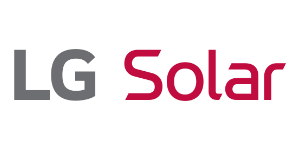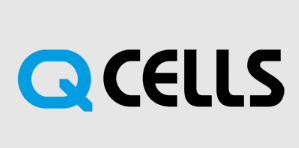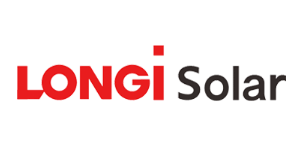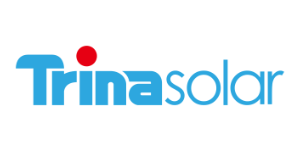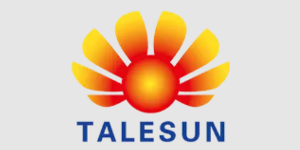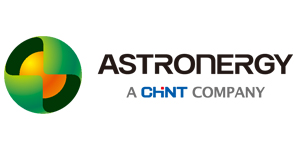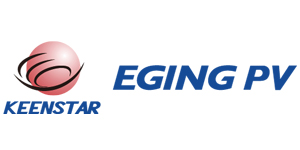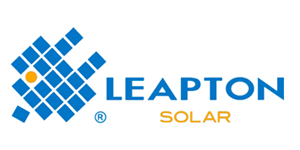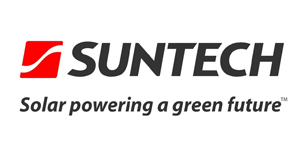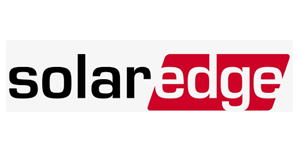What Is Solar Panel & How Does It Work?
Solar Panel is the assembly of photovoltaic silicon cells mounted in a framework. The photovoltaic effect is responsible for the production of electricity in solar panels. So, when sunlight hits the silicon cells of a solar panel, it causes the electrons in silicon to set in motion; this motion, later on, initiates a flow of electric current. In order to use electrical power, it has to be in AC (Alternating Current) mode; typically that is achieved by connecting an inverter to the solar panels.
How To Choose The Best Solar Panels?
Solar panels are too expensive not to give a considerable amount of effort to the purchasing decision. I am sure you are a responsible buyer, and that’s why I am going to provide you with some critical pointers on how to choose a good solar panel for your home.
However, remember this, even if you successfully manage to find a good solar panel brand, that’s only half the work done. The other 50% percent depends on the installation process, and I cannot stress enough how important it is to oversee and make sure this is done by the book.
Anyways, let’s get to know the things you should consider while choosing the best solar panel for your home.
Tier 1 Ranking
I am pretty sure while surfing through the internet for the perfect solar panels, you have come across a title that says, “our panels are ranked Tier 1”. At a glance, anyone would assume this to be a quality marker, but that is not it. A tier 1 rank denotes the manufacturing company of that very panel to be financially stable. Good for the company, but why would you care? Well, when you get a solar system, with that comes at least 12 to 30 years of warranty, depending on the manufacturer and panel model. If the company goes out of business within that timeline because they are not financially stable, would that tag of a 30-years panel warranty matter anymore? Yup! Didn’t think so.
Note that a very few companies which are not ranked Tier 1 sometimes make a promise that they will redeem your warranty claims even if they go out of business within that period via a third party. If you want to buy solar panels from not a Tier 1 ranked manufacturer, this is something you must look up before purchasing.
Mono Vs. Poly
A monocrystalline panel is made out of mono, AKA a single silicon ingot. In order to make solar cells for monocrystalline solar panels, silicon is formed into bars and cut into wafers. As this type of solar panel is made out of a single crystal or ingot of silicon, it is proven to be comparatively more efficient than poly. It even serves the aesthetic purposes of a solar panel. It has a sleek black look to it which makes it look spectacular on your rooftop. Companies like SunPower, LG, .etc; produce top-notch monocrystalline solar panels that are readily available worldwide.
Instead of a single crystal of silicon, manufacturers melt silicon from different ingots and put them together into a polycrystalline solar cell. Trina Solar, LONGi Solar, and so on are the companies that manufacture and distribute outstanding polycrystalline panels around the globe. As polycrystalline cells don’t have a single ingot of silicon from the same source, this does not have the luxury to allow its electrons to move more freely. As a result, it is not as efficient as the monocrystalline solar panels.
Don’t worry! It’s not all negative with the polycrystalline panels; there are positive aspects to it as well. These panels tend to be a lot cheaper than the monocrystalline panels; also, the gap in performance between mono and polycrystalline panels is getting slimmer as we speak, but the price difference remains almost the same. In the end, it is your call, but I suggest you really customize the deal and know what your needs are and how to optimize them best. If you find that to be a difficult task, we can arrange a free consultation session for you with one of our solar experts.
Efficiency
Sun is a star that is filled with gasses, and there is constantly happening a fusion reaction that fuels this star to shine bright, figuratively forever. In an hour and a half, the amount of sunshine that reaches the earth’s surface is enough to feed the entire world’s electricity usage for a year; such an enormous source of power, yet we struggle to yield it properly. But the amount of this sunlight we are able to capture and convert into electricity using solar panels denotes their efficiency rates. The most efficient solar panels that we are blessed with to this day is 22.6%, meaning only 22.6% of the sunlight can be practically converted into usable power by that particular module.
If not the most critical factor to consider, efficiency is one of the most important pieces of information to know before you buy solar panels.
Warranty
Most solar panels come with a minimum of 10 to a maximum of 30 years of panel warranty. Warranty is an important factor because solar panels are by no means cheap. There are cheaper alternatives, but they are considered ‘cheap’ in comparison to other solar panels. So, why would you give up a decent warranty period to back your purchase? Some solar panels offer a third-party warranty scheme too. So, before you make a purchase, make sure you look into this part carefully. Or appoint someone else to do the work for you. Wondering who might that be? Yours truly, of course.
Country of Origin
Some solar panels are Chinese; some are South Korean; some are American, and so on. Does the country of origin really matter? I am bound to give you a diplomatic answer here because it’s a yes and a no at the same time.
So, why would it matter? Some countries have a reputation of being technologically advanced and be the masters of their crafts. For example, if you are trying to sell me a pen and tell me that it’s from Japan, I will probably tell you to shut up and take my money. It’s human nature, but that is an example where you are selling me a pen that costs probably a buck; however, solar panels will indefinitely cost you thousands of dollars. So, yeah, country of origin might have an external effect on how we tend to perceive things as human beings, but honestly, it’s all in the numbers and feedbacks. That means solar panels from a country that you know has a reputation of doing technologically well is fantastic, however, do not underestimate others because once again, it’s the numbers that will speak for the panels.
Degradation
Suppose you had purchased a cell phone 5 years ago, and you are still using it. Yes, you might be using it, but does it still work as it used to 5 years ago? I really doubt that it does. Similarly, a solar panel’s performance drops as it ages, and that drop in performance is directly connected to its efficiency rate. This event is called degradation. The lower this number is, the better. Keep in mind; every solar panel is bound to degrade as the years pass by; no one is spared from this fate. However, the rate at which the panel degrades is what really matters, and that is what you should consider as an important factor.
Temperature coefficient
The temperature coefficient is the value by which the efficiency of your panels decreases if the temperature rises a degree above the optimal temperature, which is 25-degree Celsius. A highly efficient solar panel will have a low-temperature coefficient, while a not so efficient one will have a higher temperature coefficient.
Australian presence
Before you make a purchase, make sure the brand you are going with has an office in Australia. Sometimes, the worst-case scenario happens, and the company you chose to buy from can go out of business. This is just a possibility. Let’s suppose you bought solar panels from ‘X’ company, and it goes out of business; from whom are you going to claim your warranty now? The installer? Nope, it doesn’t work that way because they were a mere via.
Also, it is good to have the peace of mind that the panels you are investing so much money on, has a legit office in your country. This way, you can ask for help or get services from them if you need to.
How Much Does Solar Panels Cost?
Sometimes you may come across some companies who will claim to have a ridiculous deal, which can differ in price from others at a large margin. I mean, they might offer you a deal so cheap that you will get puzzled. How can a solar PV system be that cheap, and how are they managing to land such deals which differ from renowned installers so much? Can you pin the reasons how are they making this possible? No? Let me in on you a little secret.
What these companies could be potentially doing is, either number one– the panels they offer might not be the ones you would love to have on your rooftop. They may or may not be lousy brands that nobody wants nothing to do with, and they may do unlicensed nonprofessional installation job Or
Number two is – having a tag of any amount of price, which would rather seem impossible as the amount is ridiculously cheap. Any of such amount like $3000-$4000 for a 6.6KW solar system will be way more difficult to find for a renowned retailer than the ordinary ones. Why? Because these systems won’t come with any additional post-sale service. It means that by the time your system malfunctions after certain years, those retailers will be gone out of your touch. So, does it mean that your solar system is defective? Well, it could be, but our experience suggests that it has more to do with the installation work than the system itself.
When you take the solar system with such a trifle amount, it doesn’t include the fees of the A graded electricians. And whoever your electricians are, they know it too. Therefore, they will install the system in a way as if any juice maker would make the juice with half of an orange squashed as you offered them half of the money. Those installers will rush off their feet to finish off your work incomplete so that they can get another installation finished on the same day. Yet, this will be reflected in your usage after certain years when you notice that the system won’t bring your ROI as much you expected. Hence, you will be at a loss.
So, that is how some companies offer a price that is outrageously low, and I strongly recommend you to do 5-minute quick research about the retailer before you put your trust in them.
While we are at it, allow me to add a little more to this context, I might have to do a little bragging. Here at Cyanergy, we have never compromised with anything whatsoever when it comes to solar. With over 10 years of experience in the Aussies renewable energy industry, we take pride in where we are. We are CEC (Clean Energy Council) approved one of Australia’s largest solar panel and LED light installation companies. If you look for what our reputation is in the industry, I am sure you will be pleasantly surprised.
Enough bragging, let’s now talk about the pricing. To be very honest, it is hard to tell the exact numbers in this case. Because how much will the solar panels cost depends on how many of them you would need for your home, your daily electricity needs, the size of your roof, the position of it also, the geographic position of your house, and so much more. So, unfortunately, there is no straightforward answer to it. But know that solar panel brands like LG, SunPower, etc., lies on the pricier spectrum. At the same time, solar panels from brands like Canadian Solar, LONGi, Trina are on the affordable spectrum of the chart.



